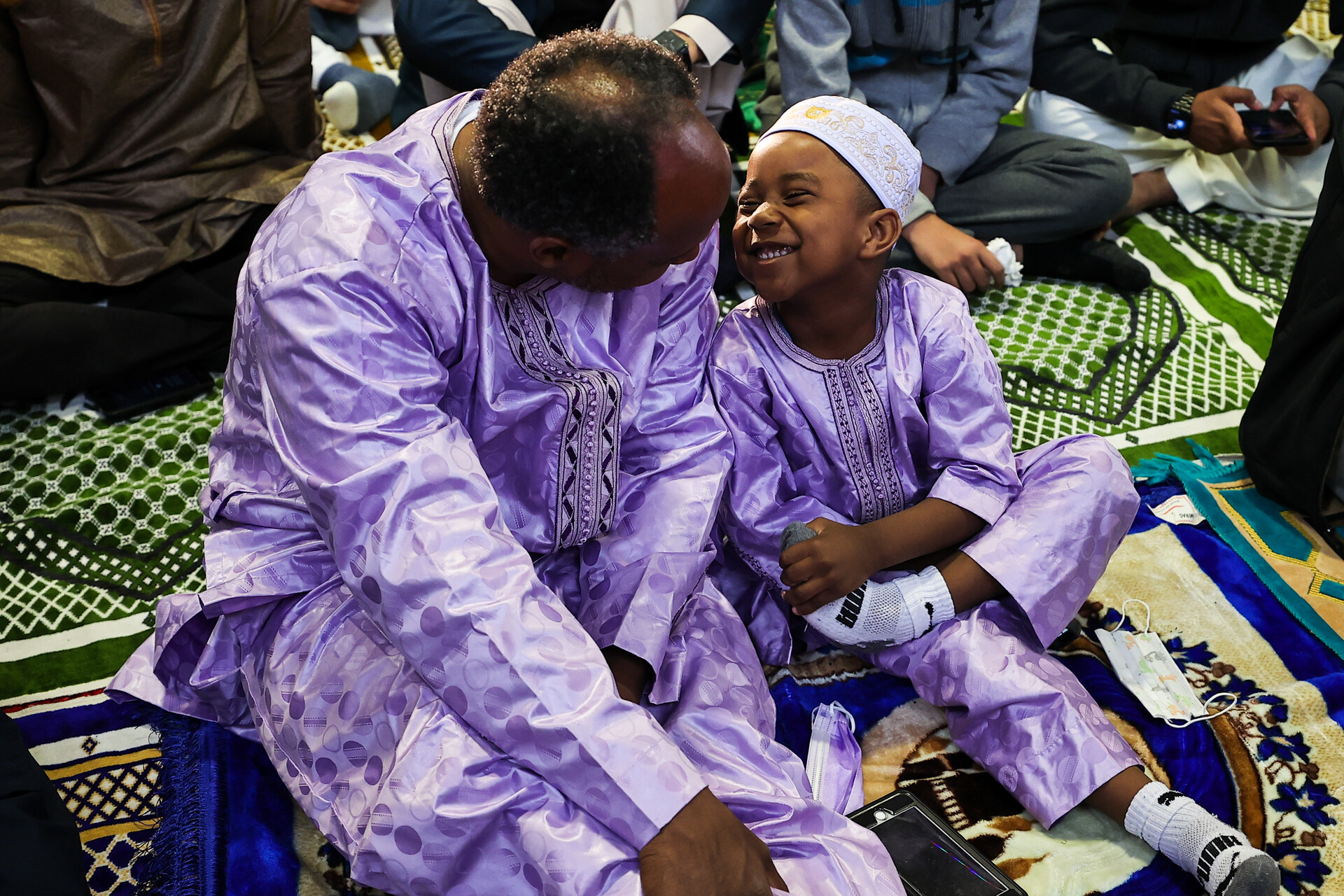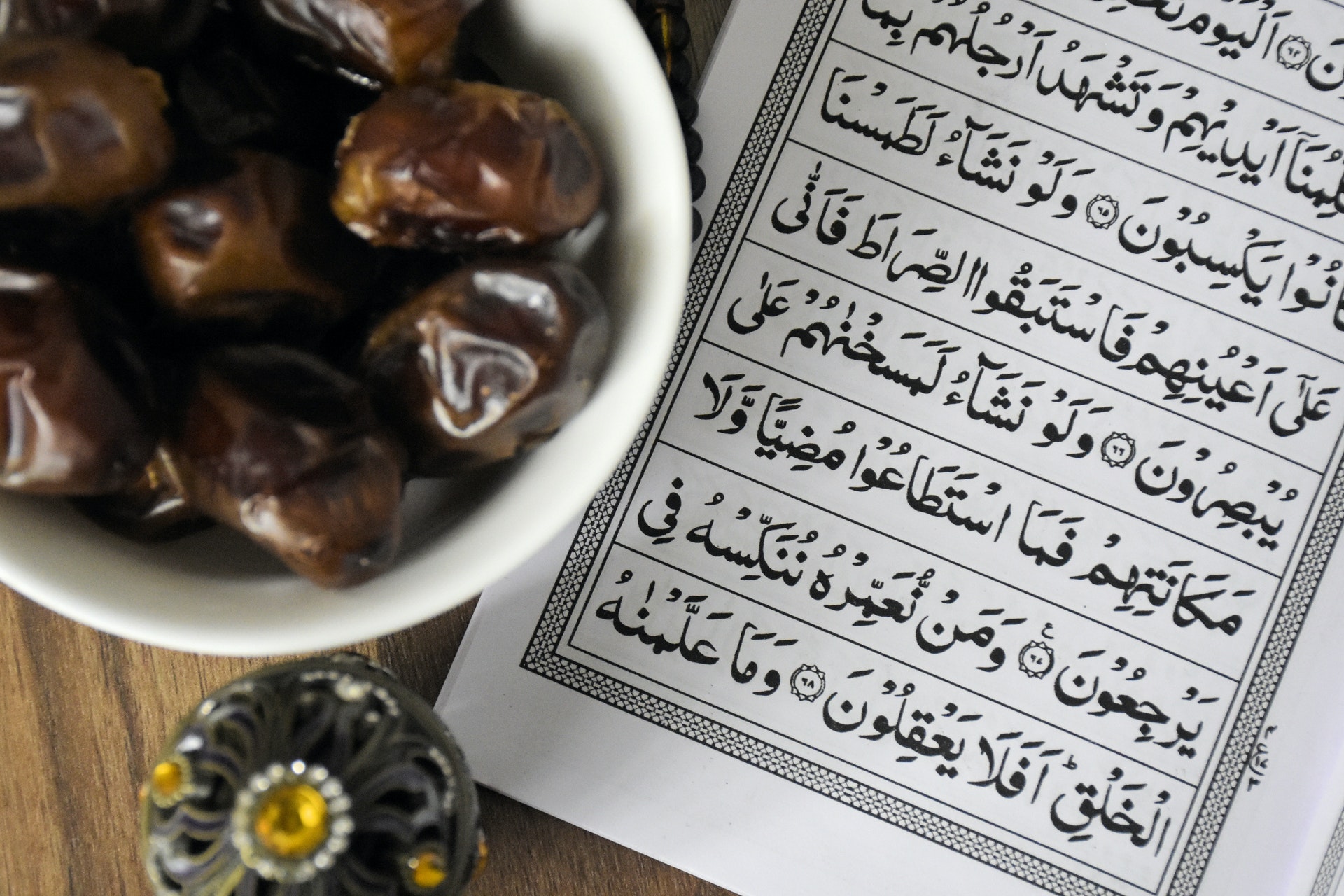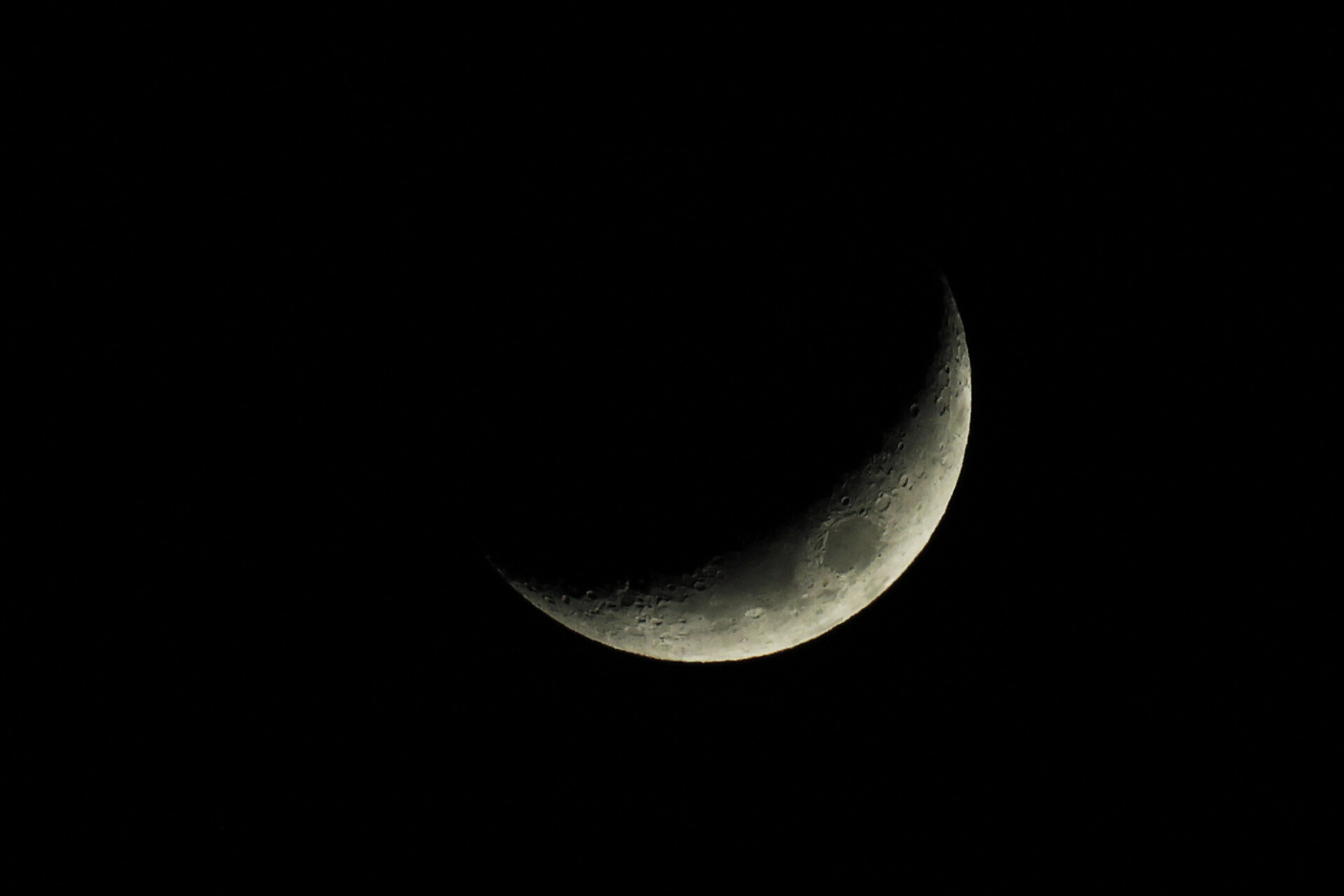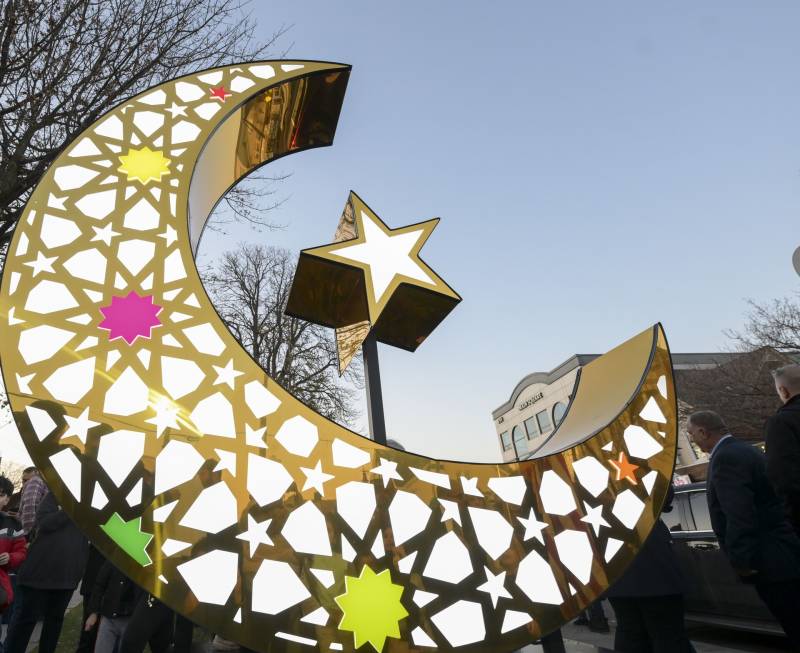Starting this week, Muslims around the world will be observing Ramadan, a holy month of fasting, spiritual healing and reflection.
Here’s all you need to know about this holy month, what several Bay Area Muslims are looking forward to about Ramadan 2023 and how you can join iftars around the region to break the fast.
‘We can all come together’
For student Zaynah Shaikh, Ramadan is a time when “we can all come together as a family, a community, as a religion, a people, and share food and break fast together.”
Shaikh is studying business administration at San Francisco State University, and is a member of the college’s Muslim Student Association (MSA).
Fasting during Ramadan is mandatory for healthy Muslims who have reached the age of puberty. But some parents encourage their kids to start trying this religious practice of fasting at a much younger age. “My parents started me at the age of 6,” said Shaikh.
Shaikh remembers feeling tears in her eyes after her first sip of water during iftars when she was 6. “My parents would be like, why are you crying?” she said, adding that she remembers feeling so blessed to be able to observe the fast with her family at a young age. “They were tears of happiness,” she said.
But by the time she was in middle school, she had a more negative experience during Ramadan. “I remember peers and teachers not really understanding why I can’t do certain things [during Ramadan],” she said. Fasting can take a toll mentally and physically, says Shaikh, and she found it challenging to navigate activities like physical education classes — and negative comments from kids at school.
Shaikh says that observing Ramadan during high school was a much better experience than those earlier years. Not only were those teachers more understanding, but she “felt more comfortable being myself, being in my own skin.” This was also the time that she started attending Islamic school on Sundays, and felt that she was able to appreciate and learn more about her faith there. Also through the school, she was able to connect with other people who had similar backgrounds growing up Muslim in the Bay Area.
Now, as she experiences this holy month in college, Shaikh says she feels excited: about the moon-sighting event, getting together with her family and community for iftar, and sharing everything about Ramadan with her friends. “I just love explaining to my peers now what Ramadan is, and why we observe Ramadan,” she said.
Her hope for the new generation of young Muslims in the Bay Area? “Don’t be afraid to be proud of who you are,” she said.

Creating a ‘Ramadan environment’ in the Bay
For some Bay Area Muslims, the celebration of Ramadan also draws comparisons to how the holy month is observed in other places they’ve lived.
Maihafizah Badiuzzaman moved to the region from Malaysia over a decade ago, and says this year she’s especially looking forward to creating a fun Ramadan environment for her kids. In previous years, she would encourage her kids to write in a “Ramadan journal,” documenting their gratitude and their experience while fasting during the holy month.
She says that it takes a bit more effort to create this environment here in the U.S. compared to Malaysia, a predominantly Muslim country. She’s planning to attend the annual moon-sighting event in the Bay Area with her family — an event they try not to miss — and also to read and reflect more on the teachings of the Quran.
Afaf Steiert, a longtime Bay Area resident and local business owner who’s originally from Egypt, says that she views Ramadan as a month for spiritual growth and grounding. Steiert has lived in the Bay Area for over 20 years, and says she’s looking forward to focusing on her fasting, connecting with the community and reflecting.
“Sometimes I don’t manage to fast,” Steiert said. “But I’m still cautious about [my] behavior and thinking.” Ramadan feels like it always comes and goes so quickly, she says — but she nonetheless hopes to “really take the extra step to connect with the Quran” this year.

In previous years, Steiert has spent time in Egypt to celebrate Ramadan with family there. Although she equally enjoys observing the period here in the United States, Steiert says it feels like there’s more time to focus on prayers back in Egypt during Ramadan, and there’s a more “celebratory vibe” there. When she misses home, she turns on her TV and tunes in to Egyptian channels, to catch up with the special coverage aired there during Ramadan.
The astronomy of Ramadan
The Islamic calendar or the lunar calendar follows the monthly cycles of the moon’s phases. The beginning and end of a lunar month are determined when the newborn crescent moon — or waxing crescent moon — is seen in the night sky, appearing one night after the new moon.
For thousands of years, before satellites and telescopes were created, Ramadan was determined by moon sightings by the naked eye. If the newborn crescent moon was sighted, then that evening during sunset marked the first night of Ramadan. But if it wasn’t directly observed (for example, because of inclement weather), it was assumed that Ramadan would begin the next night.
Today, due to technological advancements, the calculation of the first day of a lunar month can be accurate and dependable, without seeing the actual newborn crescent moon with the naked eye. So because there are two methods of determining a new lunar month or Ramadan — through astronomical calculations and moon sightings — Muslims around the world sometimes observe the beginning of Ramadan (and its end, Eid al-Fitr) on different days.
Some people follow just the astronomical calculations of the new lunar month to determine Ramadan, and some “do a combination of the calculations and the moon sighting, a combination of science and sighting,” Bay Area spiritual leader Alauddin El-Bakri told KQED in 2022. A religious director, teacher and imam, and a member of the Islamic Society of North America (ISNA), El-Bakri is based at the West Valley Muslim Association in Saratoga, and speaks at seven other mosques in the Bay Area.

“We have people either following the astronomical calculation, which is accurate, or they’re following their eyes — which is also accurate,” El-Bakri said. That the community can have two different days to mark the start of Ramadan and two different Eids is “normal, natural and actually beautiful,” he says.
Why do Ramadan and Eid dates change every year?
It’s all about the moon.
The months in a lunar calendar have only 29 or 30 days, with 354 days in a lunar year — which is 11 days shorter than the solar or Gregorian calendar.
Because of this, every year Ramadan falls 10 to 11 days earlier than the previous year. Back in 2010, Ramadan began in November, and this year it will begin on March 22.
To join your local Muslim community for the breaking of the fast, you can check out community or mosque calendars in your area. The Muslim Community Association of the Bay Area offers daily iftars for the general public — Muslim and non-Muslim alike; donations are recommended but not required. The MCC East Bay also has a schedule for iftars, and all are encouraged to join; registrations are encouraged so organizers can ensure the right amount of food is available. See a list of Ramadan and Eid events around the Bay Area.
A brief history of Ramadan
Ramadan is the ninth month of the Islamic calendar, and was said to be the month the Quran was revealed to the prophet Muhammad in the year 610 A.D. It is, says imam El-Bakri, “the birth month of the Quran.”
He adds that Ramadan therefore “is the birth month of Islam,” and that the “night of destiny” — Laylat al-Qadr — is said to be the specific day the Quran was revealed. And while El-Bakri says the exact night itself is not specifically known, it took place “on one of the last 10 nights of Ramadan.” This period therefore has a special significance to Muslims, and is usually observed by performing special nightly prayers at home or at the mosques.
During Ramadan, Muslims fast from dawn until dusk, usually breaking their fasts with dates and fruits, before continuing their iftar of a full meal. Later in the night — only during Ramadan — there are special prayers called tarawih that are performed either at home or at the mosque.

